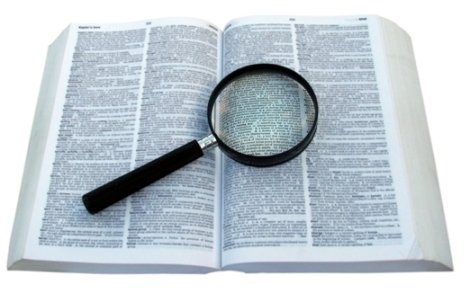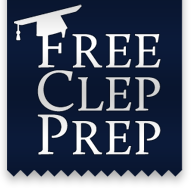Analyzing and Interpreting Literature CLEP
Free Study Guide

Name of Exam: Analyzing and Interpreting Literature CLEP
Number of Questions: 80
Time Limit: 90 Minutes
ACE Recommended Passing Score: 50
Practice Test Available?: Yes - Click here
Cost: $80 + Sitting Fee (Usually no more than $20) at your testing site. Military can take CLEPs for free with Tuition Assistance. Check with your Educational Officer!
Important! - The Analyzing and Interpreting Literature CLEP exam has an optional essay portion. If your school requires you to take this optional essay, there may be additional fees. I haven't heard of a school that requires the optional essay yet, but it's something to be aware of.
Difficulty 1-5 : 2
(One being the easiest, and five being the hardest)
Exam Description:
The Analyzing and Interpreting Literature CLEP is an exam that's difficult to describe. It tests your ability to read and understand prose and poetry. It doesn't test your knowledge of the works themselves, or the people who wrote them. Rather it tests your knowledge on the meaning behind the works, and the literary devices used to create them.
If your school requires that you take the optional essay portion, then the test will require you to write two essays answering two different questions. One essay will require you to give your analysis on a short poem. The second essay will require you to apply a theme or technique to a literary work you are familiar with, and explain how you've done so.
To repeat myself; I have never heard of a school that requires the optional essays. If your school does, then they'll give you an additional 90 minutes to complete the two essays. Keep an eye on the clock and you'll do fine.
Personal Thoughts:
I really do my best to stay away from generalizations like, "Oh this such an easy exam!", or "You don't even need to study for this!". The reason I do so is simple - There will always be someone out there that proves me wrong. If 100 people take that advice and pass, there will always be that 1 person who tries it and fails. This is one of those exams that I really, really want to make such a sweeping statement, but that one person is glaring at me from the back of the crowd.
So instead I'll qualify myself by saying the following. "Most" people have absolutely, positively, no problems with the Analyzing and Interpreting Literature CLEP exam. If you read quite a bit (even if it's Dr. Seuss and comic books) then you already know the basics in how to analyze and interpret literature. Remember all those reading comprehension quizzes back in elementary school? Those are like mini Analyzing and Interpreting Literature CLEP tests. Being able to understand what a poet is talking about in a poem is no more difficult then trying to determine what a singer is talking about in a song. Most people can tell you what a song is about after listening to it once. Look at poetry the same way and I think it will help.
The exam may also ask you to determine what emotion the writer is trying to convey. If the piece is about a cold, wet day with fog, I probably would steer away from "Happy, and full of good cheer!" as my answer. Most of this type of question is going to be common sense and won't require you to get too "deep".
One thing you will need to study up on for this exam is the same literary devices you used in the American Literature CLEP as well as the English Literature CLEP. You must know these terms and their definitions for the Analyzing and Interpreting Literature CLEP, and this is where the bulk of your time studying for this exam should be spent.
Exam breakdown:
According to the College Board website, the Analyzing and Interpreting Literature CLEP exam is broken down as follows:
The type of literature you'll be asked to analyze:
| 35%-45% | Poetry |
|---|---|
| 35%-45% | Prose (fiction and nonfiction) |
| 15%-30% | Drama |
The "Nationalities" of those works:
| 50%-65% | British Literature |
|---|---|
| 30%-45% | American Literature |
| 5%-15% | Works in Translation |
The Period the works are pulled from:
| 35%-45% | 18th and 19th Centuries |
|---|---|
| 25%-35% | 20th and 21st Centuries |
| 20%-30% | Renaissance and the 17th Century |
| 03%-07%% | Classical and pre-Renaissance |
Of note are the time periods. You'll probably get some poems and prose written in the English of the period. Thankfully, it's not true Old English, otherwise I would have been completely lost - An example of Beowulf in Old English. You may get hit with an author like Geoffrey Chaucer however, and the Middle English in use at the time throws a lot of people off. Click on this to see what I mean - Example of Middle English
Now if you just fainted, go ahead and pick yourself off the floor. In the Analyzing and Interpreting Literature CLEP, you probably won't get hit with too much of this type of thing (English Lit may be a different story). I'll give you a trick though that works for me, and it may work for you as well.
Look at the last link I gave you, and instead of trying to read it silently, just read it out loud instead. As your eyes read the letters, your mouth will shape the words on its own. It will tend to go with the words that it knows and that sounds most like what your eyes are reading.
It may sound dumb, but that method has saved me quite a few times with poetry and reading older forms of English. Maybe it'll help you out too. Don't read it too loud if you do use this method. We don't want you getting kicked out of the testing center for screaming Chaucer! ;)
Areas of Study
A few of the topics that you will need to know for the Analyzing and Interpreting Literature CLEP are:
- Antagonist
- Blank Verse
- Climax
- Context
- Dialogue
- Exposition
- Hyperbole
- Imagery
- Onomatopoeia
- Parallelism
- Protagonist
- Symbolism
- Tone
- Tragedy
This is not a comprehensive list. Learn all of the Literary Devices found on the below link.
I always recommend you see the Instant Cert Exam Specific forum for a further breakdown of study topics. They've spent years accumulating their lists, which goes into much greater detail. You'll learn about Instant Cert below if you haven't heard of it already.
Free study resources
Click on the titles to go to the study resource
Glossary of Poetic Terms - One of our visitors found this outstanding list of Poetic Terms and their definitions. Probably the most compact list of these that I've seen. Thanks Suzi!
Common Literary Devices - Know these and you'll be happy you did when it's time to take the Analyzing and Interpreting Literature CLEP. It's one of the only real online resources I can give you for this exam, so spend some time on it! You may notice a few duplicates from the link above this one, but there's plenty of new terms as well that don't apply to poems.
Analyzing Poetry - Because I'm wracking my brain trying to come up with something for everyone to practice on, and yet not waste time with. This gives a pretty decent understanding of how to analyze poetry (and prose). Most people do this without thinking about it, but if you have had trouble in the past understanding poetry, try some of the examples listed here and see how they're analyzed. Also, remember the song method. Treat the poem like a song if it helps to understand it.
Poetry Practice - Some famous poems that have been analyzed to death. If you have trouble understanding one, then simply type "Analysis of *Poem title here*" into Google and behold the millions of college students who have been in your shoes! ;)
Rudyard Kipling's - "IF" - Just because I'm the one typing this study guide, I'm including my favorite poem of all time so you can err... analyze (enjoy) it too. ;)
Recommended bargain-priced study resources
Always check your library first! You may be able to find some of these for free. You don't have to buy the officially recommended resources all the time. If you're the type of person that prefers to study from a textbook source however, then please see below.
CLEP Analyzing & Interpreting Literature with CD-ROM (REA) - Most people are not going to need this for the Analyzing and Interpreting Literature CLEP. In fact, I'm convinced the only reason REA put this book out was they knew most people could pass without it, and it's an easy win. "Yeah! I read the book and passed! REA works!" If you're still feeling nervous though, it will help you pass. If nothing else the practice tests will help.
InstantCert Academy - Analyzing and Interpreting Literature Specific Exam Feedback - Mostly 6 pages of people saying they can't believe how high they scored. They do have a lot of study notes, specific topics of study, and after action reports.
If you don't know what InstantCert is, then click here for the scoop as well as a discount code: **InstantCert Academy**
You'll find an InstantCert link for every exam here if that gives you an idea of the amount of information they have available. It's an outstanding resource.
Closing Thoughts
I'll never tell someone to go take a test without studying for it. If you fail a CLEP, you have to wait six months to retake it, so you should study at least a little bit for all of them. That being said, this is one that I truly wouldn't spend more than a week (tops) studying for. A few days of targeted study should be enough. It's worth six credits, so it's definitely worth the effort. Go get em!
Best of luck!
Return from Analyzing and Interpreting Literature CLEP to
the CLEP Exams Page
Or, you can head back to the home page with the below link
Return from Analyzing and Interpreting Literature CLEP to
the Free Clep Prep Home Page
